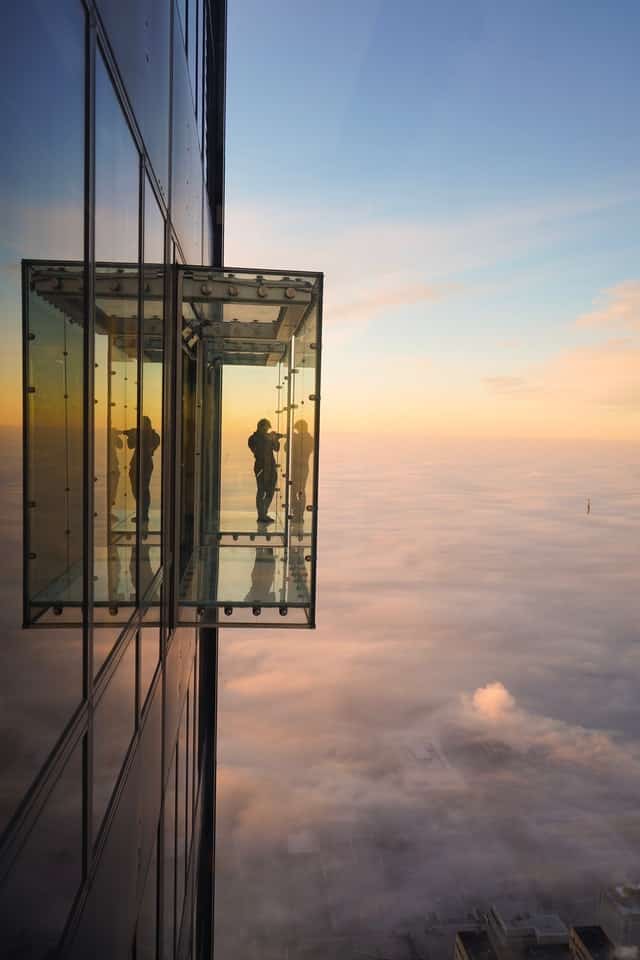If you’re not sure whether your glass operations classification codes for NY glass merchant workers comp rates, we’re here to help explain the difference between Code 4130 Glass Merchant and Code 5462 Glaziers. Please give us a call at 212-947-4298 to ensure you are using the right class code for your business.
This post was originally published on July 27, 2011, and updated on June 14, 2020.
NY Class Code – 4130 GLASS MERCHANT
Definition: NY Workers Comp Code 4130 applies to the daily operations of receiving, storing, and selling of glass. Products such as window glass, plate glass, safety glass for automobiles, mirrors, and other types of glass.
- Who Can Use It: This Class Code applies to employees located at glass merchant shops only. Duties performed include buffing, polishing, beveling, grinding, and installing glass/mirrors into frames. Employees engaged in the delivery and installation of glass products should be classified under class code 5462 – Glazier Away from Shop.
- Pricing: Class Code for Glass Merchants has seen a small increase of 1.6% over 2010 rates
- Who’s Writing this Coverage: Glass Merchants with strong safety programs have many carriers options. Contact us @ 212-947-4298 for competitive price quotes.
GLASS Manufacturers and Wholesalers
SIC CODE: 3211 Flat Glass
3221 Glass Containers
3231 Products of Purchased Glass
NAICS CODE: 327211 Flat Glass Manufacturing
327213 Glass Container Manufacturing
327215 Glass Product Manufacturing Made Of Purchased Glass
Suggested ISO General Liability Code: 54077
Suggested Workers Compensation Code: 4101, 4113, 4130 (Wholesalers)
Description of operations
Glass is manufactured by combining and mixing the raw materials, adding coloring and tints when necessary, then melting and releasing the molten glass into a float bath tank. It is then cooled within the tank and conveyed onto an area to be cut. The process is usually highly automated. The material combining and mixing is also an automated process to provide consistency and accuracy. The float baths can be very large — several hundred feet. Because of the size and the cost to heat and process, the operation is continual and not shut down until absolutely necessary.
Property exposures consist of high heat, the continual use of the machinery — which can cause wear and tear and malfunction — and the molten materials. All must be carefully controlled and monitored. Utility stoppage is a major concern because of the continual operation of the float baths.
Business income is high because once a system is shut down, it is a major operation to start it up again. Most of the machinery is tailor-made for each individual operation.
Business Insurance Types & NY Glass Merchants Workers Comp Rates
Premises liability exposures are moderate as long as the premises has controlled access, especially to the processing areas. These facilities are popular for tour groups which can add to the exposure. The storage of large quantities of raw materials such as silica, plus recycled salvage can produce attractive nuisance hazards. Fencing is important to deter young trespassers.
Products liability exposure is low to moderate as long as good quality control is in place and cracks, and checks are conducted to detect blemishes or other defects. Bulletproof glass and similar special-purpose glass would raise product liability exposure.
Environmental impairment is moderate to high. Both the vapors and pollutants that can be released into the air are noxious and hazardous, as are the waste materials. These chemicals should be handled by qualified, licensed material waste handlers. All aspects of pollution should be reviewed.
Automobile exposure may be light to moderate. Transport of finished goods is normally not a high concern and is often shipped or contracted to outside sources. If the manufacturer is responsible for delivery, further evaluation is needed. Additional automobile exposure may arise if a fleet of vehicles is used for sales. Training and prior record of drivers, as well as the condition and maintenance of vehicles, are the main items to consider.
Workers’ compensation exposures come from the maintenance of the machinery, burns from the heat, and exposure to silica dust. The crushing and recycling of defective glass add to flying glass shards thus requiring eye protection. The industry is highly mechanized and employees are not exposed as they were at one time. The major concern would come with any machine problems that require manual intervention.
Minimum recommended coverage
Building, Business Personal Property, Business Income, Accounts Receivable, Computers, Goods in Transit, Employee Dishonesty, General Liability, Employee Benefits, Environmental Impairment, Umbrella, Hired and Nonownership Auto, Workers Compensation.
Other coverages to consider
Business Auto Liability and Physical Damage, Employment Related Practices
To learn about the latest NY Glass Merchants Workers Comp Rates, give Enforce Coverage Group a call.

